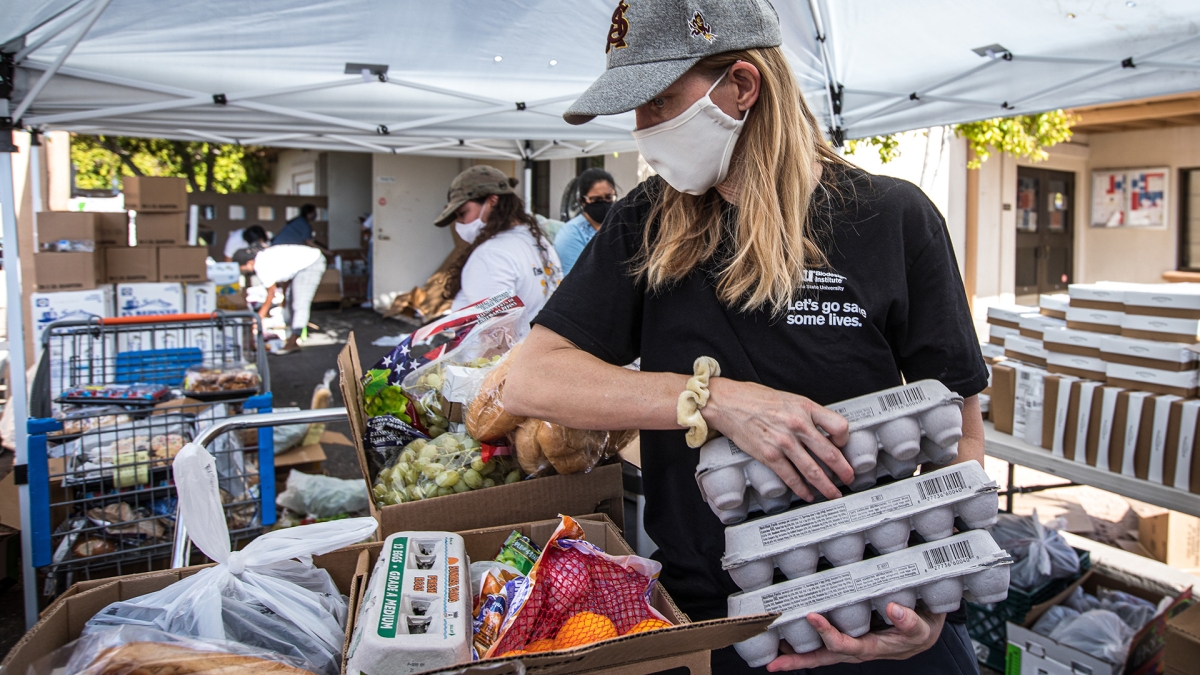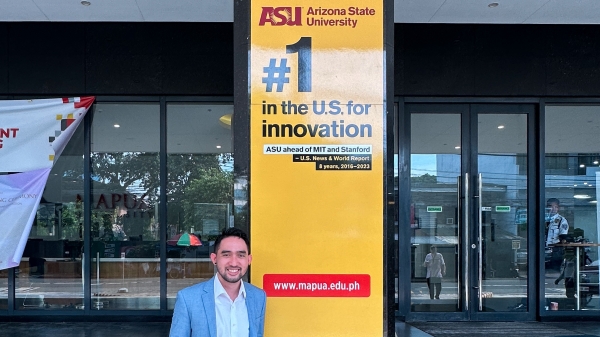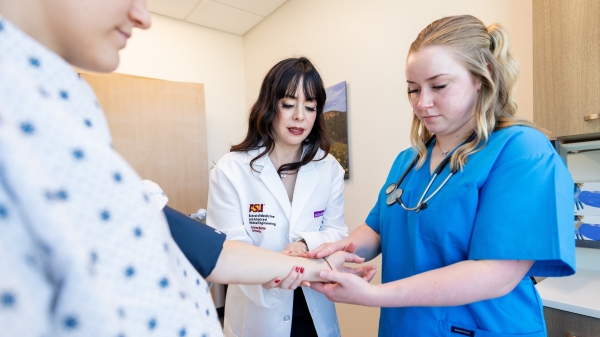Guadalupe COVID-19 Community Response Team receives university, town honors

Associate Professor Megan Jehn helps distribute food at a community food drive in Guadalupe on Aug. 4, 2020. The weekly event is part of the Guadalupe COVID-19 Community Response Team's work supporting community health in the town. Photo by Charlie Leight/ASU News
An Arizona State University epidemiologist and her team have earned university and municipal honors for their work helping the town of Guadalupe respond to COVID-19.
The Guadalupe COVID-19 Community Response Team, formed in June 2020, brings together ASU faculty, staff, students and community partners to lessen the impact of COVID-19 in Guadalupe. The team provides a wide range of services designed to slow the spread of the virus and serve those in need. During the team’s time working in the community, rates of new cases in Guadalupe have declined from 5.5 times higher than the Maricopa County average to being in line with the rest of the county.
The response team is a collaborative effort between ASU, the Maricopa County Department of Public Health, the town of Guadalupe, the Pascua Yaqui Tribe and Native Health. Megan Jehn — an epidemiologist, associate professor in ASU’s School of Human Evolution and Social Change, and affiliate of the Center for Global Health — leads the university’s contributions to the project.
“Working on the Guadalupe Community Response Team has been one of the most rewarding experiences of my professional career,” Jehn said. “COVID-19 has disproportionately impacted Native American and Hispanic communities here in Arizona, and there was an urgent need to provide public health resources to slow the spread of the virus.”
A field epidemiology group of more than 250 ASU students, staff and volunteers conducts case investigations and contact tracing seven days per week in Maricopa County. Jehn’s Student Outbreak Response Team, which has operated as a hands-on training program for global health students for the past six years, quickly pivoted and expanded to a large rapid-response team during the initial surge in COVID-19 cases. The team deployed to Guadalupe and has completed hundreds of case interviews there.
The Community Response Team also provides at-home testing; vaccination events; support for those isolating; culturally, linguistically and geographically appropriate health education; and a weekly community food drive. The team has supported more than 300 households through home isolation, conducted door-to-door case investigations and contact tracing, and engaged students and community volunteers to provide a surge public health workforce.
RELATED: ASU employees honored with President's Awards at ceremony
Other key ASU members of the team include Program Managers Jasmine Truong, Laura Meyer, Tim Dennehy and Kim Prete, and Field Supervisors Jennifer Jackman and Gloria Karirirwe.
The project received the ASU President’s Medal for Social Embeddedness this week, an award recognizing teams that help embed the university into the social and cultural fabric of the surrounding communities.
“At the end of the day the reason that people in public health have stepped up is because we care, it’s our life’s work and we want to use our knowledge and expertise to help communities get through this pandemic with the minimal amount of suffering,” Jehn said.
Over the summer, the town of Guadalupe also designated the team an official community partner. The Community Partners Program recognizes organizations that provide services or special events in Guadalupe. The Town Council formally approved the designation.
“To earn the trust and partnership of a community means the world to me, especially in the field of global health,” Jehn said. “This recognition and acknowledgement by the town means more to me personally than any academic accolade.”
More Health and medicine

Linguistics work could improve doctor-patient communications in Philippines, beyond
When Peter Torres traveled to Mapúa University in the Philippines over the summer, he was shocked to see a billboard promoting…

Turning data into knowledge: How Health Observatory at ASU aims to educate public
This is how David Engelthaler described his first couple of months on the job as executive director of the Health Observatory at…

HonorHealth named primary clinical affiliate for new ASU School of Medicine and Advanced Medical Engineering
Arizona State University and HonorHealth, a locally owned nonprofit health system, announced today that they have finalized an…